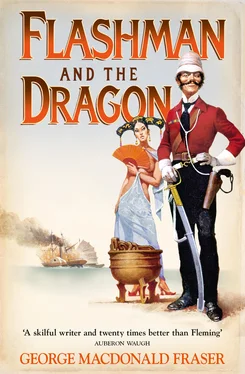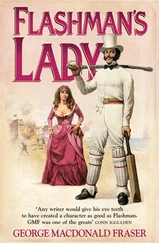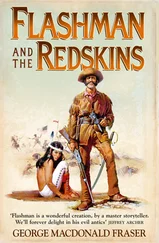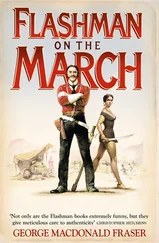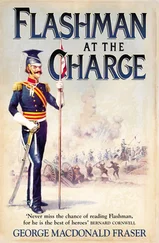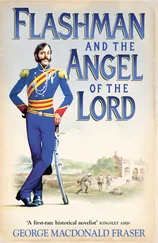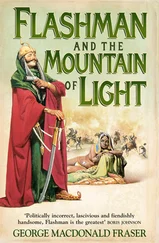George Fraser - Flashman and the Dragon
Здесь есть возможность читать онлайн «George Fraser - Flashman and the Dragon» — ознакомительный отрывок электронной книги совершенно бесплатно, а после прочтения отрывка купить полную версию. В некоторых случаях можно слушать аудио, скачать через торрент в формате fb2 и присутствует краткое содержание. Жанр: unrecognised, на английском языке. Описание произведения, (предисловие) а так же отзывы посетителей доступны на портале библиотеки ЛибКат.
- Название:Flashman and the Dragon
- Автор:
- Жанр:
- Год:неизвестен
- ISBN:нет данных
- Рейтинг книги:5 / 5. Голосов: 1
-
Избранное:Добавить в избранное
- Отзывы:
-
Ваша оценка:
- 100
- 1
- 2
- 3
- 4
- 5
Flashman and the Dragon: краткое содержание, описание и аннотация
Предлагаем к чтению аннотацию, описание, краткое содержание или предисловие (зависит от того, что написал сам автор книги «Flashman and the Dragon»). Если вы не нашли необходимую информацию о книге — напишите в комментариях, мы постараемся отыскать её.
Flashman and the Dragon — читать онлайн ознакомительный отрывок
Ниже представлен текст книги, разбитый по страницам. Система сохранения места последней прочитанной страницы, позволяет с удобством читать онлайн бесплатно книгу «Flashman and the Dragon», без необходимости каждый раз заново искать на чём Вы остановились. Поставьте закладку, и сможете в любой момент перейти на страницу, на которой закончили чтение.
Интервал:
Закладка:
Theirs wasn’t the only music on Kowloong, neither. I loafed up to the big tent with the flag, whence came the most hideous, droning, booming din; there was a staff-walloper climbing aboard his Waler, a couple of Maharatta sentries on the fly, and a slim young fellow with a fair moustache sitting on a camp-stool, sketching. I came up on his blind side, just for devilment, and he started round angrily.
‘How often have I told you never to—’ he was beginning, and then his good eye opened wide in amazement. ‘Flashman! My dear fellow! Wherever did you spring from?’
‘Here and there, Joe,’ says I. ‘The Mad Musician is within?’
‘What? Here, I say! You can’t go in just now, you know – he’s composing!’
‘Decomposing, by the sound of it,’ says I, and stuck my head in at the fly. Sure enough, there was the lean, gaunt figure, in its shirt-sleeves, sawing away like a thing demented at a great bull fiddle, glaring at a sheet of music which he was marking between scrapes, and tugging at his bristling grey whiskers, to stimulate the muse, no doubt. I flipped a coin into a glass on the table.
‘Move on to the next street, my good man, will you?’ says I. ‘You’re disturbing the peace.’
Being a sensitive artist – and a major-general – he should have gone up three feet and come down spluttering. But this one had no nerves to begin with, and more mastery of himself than a Yogi. He didn’t so much as twitch – for a second I wondered if he hadn’t heard me – and then he played another chord, jotted it on his manuscript, and spoke without turning his head.
‘Flashman.’ Another chord, and he put his fiddle by and turned to fix me with those wild, pale eyes that I hadn’t seen since Allahabad, when Campbell pinned the Cross on me. ‘Very good, Wolseley,’ says he to Joe, who was fidgeting behind me. He took my hand in his bony grip, nodded me to a stool – and then he stood and looked at me for two solid minutes without saying a word .
Now, I tell you that in detail to show you what kind of a man was Major-General Sir James Hope Grant. You don’t hear much of him nowadays; Wolseley, the boy who was sketching at the door, has ten times the name and fame 6– but in my time Grant was a man apart. He wasn’t much of a general; it was notorious he’d never read a line outside the Bible; he was so inarticulate he could barely utter any order but ‘Charge!’; his notions of discipline were to flog anything that moved; the only genius he possessed was for his bull fiddle; he could barely read a map, and the only spark of originality he’d ever shown was to get himself six months in close tack for calling his colonel a drunkard. But none of this mattered in the least because, you see, Hope Grant was the best fighting man in the world.
I’m no hero-worshipper, as you may have gathered, and my view of the military virtues is that the best thing you can do with ’em is to hang them on the wall in Bedlam – but I know cold fact when I see it. With sword, lance, or any kind of side-arm he was the most expert, deadly practitioner that ever breathed; as a leader of irregular cavalry he left Stuart, Hodson, Custer, and the rest at the gate; in the Mutiny he had simply fought the whole damned time with a continuous fury that was the talk of an army containing the likes of Sam Browne, John Nicholson, and (dare I say it?) my vaunted but unworthy self. Worshipped by the rank and file, naturally; he was a kindly soul, for all they called him the ‘Provost-Marshal’, and even charming if you don’t mind ten-minute silences. But as a hand-to-hand blood-spiller it was Eclipse first and the rest nowhere. 7
He thought I was another of the same, never having seen me in action but believing what he was told, and we’d got on pretty well, considering my natural levity and insolence. He couldn’t make this out at all, and I’d been told on good authority that he thought I was insane – the pot calling the kettle ‘Grimy arse’, if you ask me. But it meant that he treated me as a wild, half-witted child, and grinned at my jokes in a wary sort of way.
So now he asked me how I did, pushed coffee and biscuits at me (no booze for maniacs, you see), and without any preamble gave me his views on the forthcoming campaign. This was what I’d come for: twenty words from Grant (and you were lucky if you got that many) were worth twenty thousand from another. I knew the rough of it – twelve thousand of ourselves and five thousand French to escort Elgin and the Frog envoy, Gros, to Pekin, in the teeth of frenzied Chinese diplomatic (and possibly military) opposition. Grant was fairly garrulous, for him.
‘Shared command. Montauban and I. Day about. Lamentable.’ Pause. ‘Supply difficult. Forage all imported. No horses to be had. Brought our own from India. Not the French. Have to buy ’em. Japan ponies. Vicious beasts. Die like flies.’ Another pause. ‘French disturb me. No experience. Great campaigns, Peninsula, Crimea. Deplorable. No small wars. Delays. Cross purposes. Better by ourselves. Hope Montauban speaks English.’
That would make one of you, thinks I. Would the Chinese fight, I asked, and a long silence fell.
‘Possibly.’ Pause. ‘Once.’
Believe it or not, I could see he was in capital spirits, in his careful way – no nonsense about beating these fellows out of sight or being in Pekin next week, which you’d have got from some of our firebrand commanders. His doubts – about the French, and supply transport – were small ones. He would get Elgin and Gros to Pekin, without a shot fired if he could contrive it – but God help the Manchoos if they showed fight. Bar Campbell, there wasn’t a general I’d have chosen in his place. I asked him, what was the worst of it.
‘Delay,’ says he. ‘Chinese talk. Can’t have it. Drive on. Don’t give ’em time to scheme. Treacherous fellows.’
I asked him the best of it, too, and he grinned.
‘Elgin. Couldn’t be better. Clever, good sense. Goodbye, Flashman. God bless you.’
Perhaps he said more than that, but d’ye know, I doubt it – I can see him yet, bolt upright on his camp-stool, the lean, muscular arms folded across his long body, the grizzled whiskers like a furze-bush, chewing each word slowly before he let it out, the light eyes straying ever and anon to his beloved bull fiddle. As Wolseley strolled with me down to the jetty, we heard it again, like a ruptured frog calling to its mate.
‘The Paddy-field Concerto, with Armstrong gun accompaniment,’ says he, grinning. ‘Perhaps he’ll have it finished by the time we get to Pekin.’
I had learned all they could tell me, and since Hong Kong is a splendid place to get out of, I caught the packet up to Shanghai to present myself to Bruce, as directed. It was like going into another world – not that Shanghai was much less of a hell-hole than Hong Kong, but it was China , you understand. Down in the colony it was England peopled by yellow faces, and British law, and the opium trade, and all thoughts turning to the campaign. Shanghai was the great Treaty Port, where the Foreign Devil Trade Missions were – British, French, German, American, Scowegian, Russian, and all, but it was still the Emperor’s city, where we were tolerated and detested (except for what could be got out of us), and once you poked your nose out of the consulate gate you realised you were living on the dragon’s lip, with his fiery eyes staring down on you, and even the fog that hung over the great sprawling native city was like smoke from his spiky nostrils.
The Model Settlement was much finer than Hong Kong, with the splendid houses of the taipans, and the Bund with its carriages and strollers, and consulate buildings that might have come from Delhi or Singapore, with gardens high-walled to keep out the view – and then you ventured into the native town, stinking and filthy and gorged with humanity (with Chinese, anyhow), with its choked alleys and dung-heaps, and baskets of human heads hung at street-corners to remind you that this was a barbarous, perilous land of abominable cruelty, where if they haven’t got manacles or cords to secure a suspected petty thief, why, they’ll nail his hands together, you see, until they get him to the hoosegow, where they’ll keep him safe by hanging him up by his wrists behind his back. And that is if he’s merely suspected – once he’s convicted (which don’t mean for a moment that he’s guilty), then his head goes into the basket – if he’s lucky. If the magistrate feels liverish, they may flog him to death, or put the wire jacket on him, or fry him on a bed of red-hot chains, or dismember him, or let him crawl about the streets with a huge wooden collar on his neck, until he starves, or tattoo him to death.
Читать дальшеИнтервал:
Закладка:
Похожие книги на «Flashman and the Dragon»
Представляем Вашему вниманию похожие книги на «Flashman and the Dragon» списком для выбора. Мы отобрали схожую по названию и смыслу литературу в надежде предоставить читателям больше вариантов отыскать новые, интересные, ещё непрочитанные произведения.
Обсуждение, отзывы о книге «Flashman and the Dragon» и просто собственные мнения читателей. Оставьте ваши комментарии, напишите, что Вы думаете о произведении, его смысле или главных героях. Укажите что конкретно понравилось, а что нет, и почему Вы так считаете.
